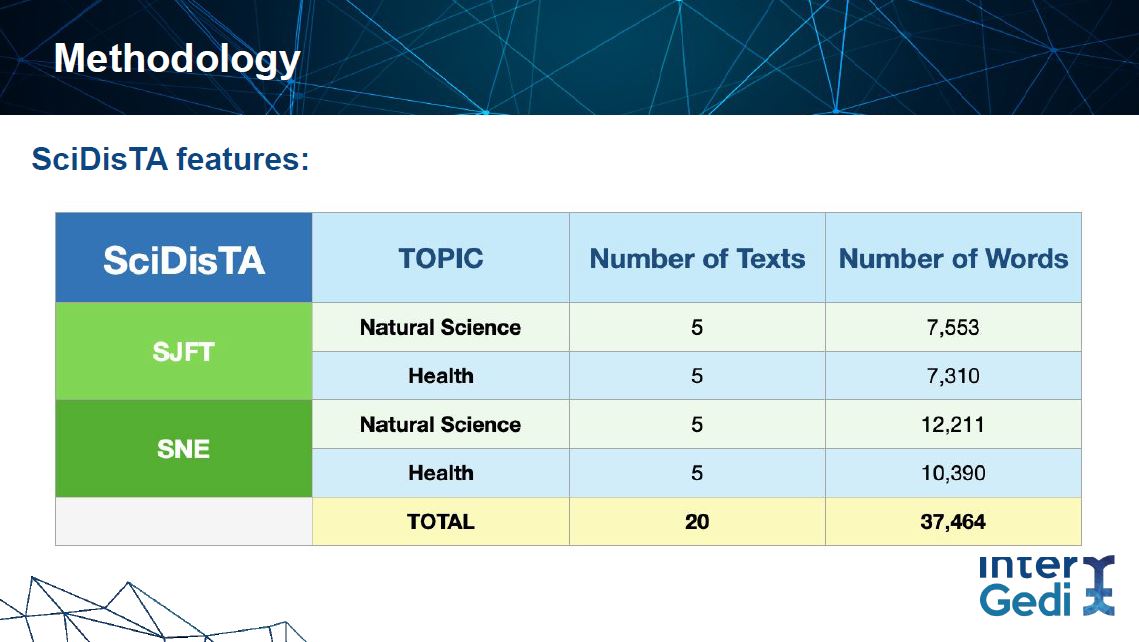TaLC 2024: Luis Martínez-Kleiser analyses linguistic patterns in scientific texts for adolescents

Our team member Luis Martínez-Kleiser participated in the 16th Teaching and Language Corpora (TaLC) conference, celebrated in the Manchester Metropolitan University (UK) from the 7th to the 10th of July 2024. The main topics of this conference revolved around corpus-based approaches to language learning, teaching and assessment.
In his paper, which was titled “Scientific dissemination for adolescents: Linguistic patterns and potential use in the EFL classroom”, Luis presented a study in which he analysed a corpus of scientific texts for adolescents in order to explore the linguistic patterns used for the recontextualisation of expert knowledge. In particular, he aimed to analyse the role of questions and definitions in said recontextualisation process. His corpus, which is part of the SciDis database, contains 20 texts from the Science Journal for Teens and Science News Explorers websites. As part of this presentation, Luis also explored how the findings could be used in the EFL and CLIL classroom by offering some exploitation suggestions.
You can read the abstract of his talk below:
Scientific dissemination for adolescents: Linguistic patterns and potential use in the EFL classroom
The digital age has profoundly shaped how today’s adolescents engage with knowledge, given the instant accessibility of information and their hyper-connected environment. This heightened awareness extends to topics like global warming, deforestation, clean energy, carbon footprint, and mental and physical health. Adolescents often explore blogs and websites where scientific knowledge is recontextualised from original sources, aiming to provide reliable information at their comprehension level.
English as a Foreign Language (EFL) and Content and Language Integrated Learning (CLIL) educators recognize the value of authentic materials in secondary education. This study addresses the need for corpora in English-medium instruction while aligning with adolescents’ interest in contemporary scientific topics. The aim is to compile and analyse a corpus of scientific texts tailored for teenage audiences, focusing on linguistic patterns that facilitate the recontextualization of intricate scientific concepts into accessible knowledge for young L2 learners.
The study will draw on a sub-corpus from the SciDis corpus compiled by the InterGEDI research group at Universidad de Zaragoza (Spain). It contains 20 texts drawn from Science Journal for Teens and Science News Explorers websites specifically addressed to the adolescent audience. Results will be presented on the use of frequently used linguistic patterns, especially questions and definitions, as a key cognitive discourse function when recontextualizing specialized knowledge from published scientific articles. Based on the findings, the potential application of this corpus in the EFL and CLIL classroom will be explored and specific suggestions offered.
